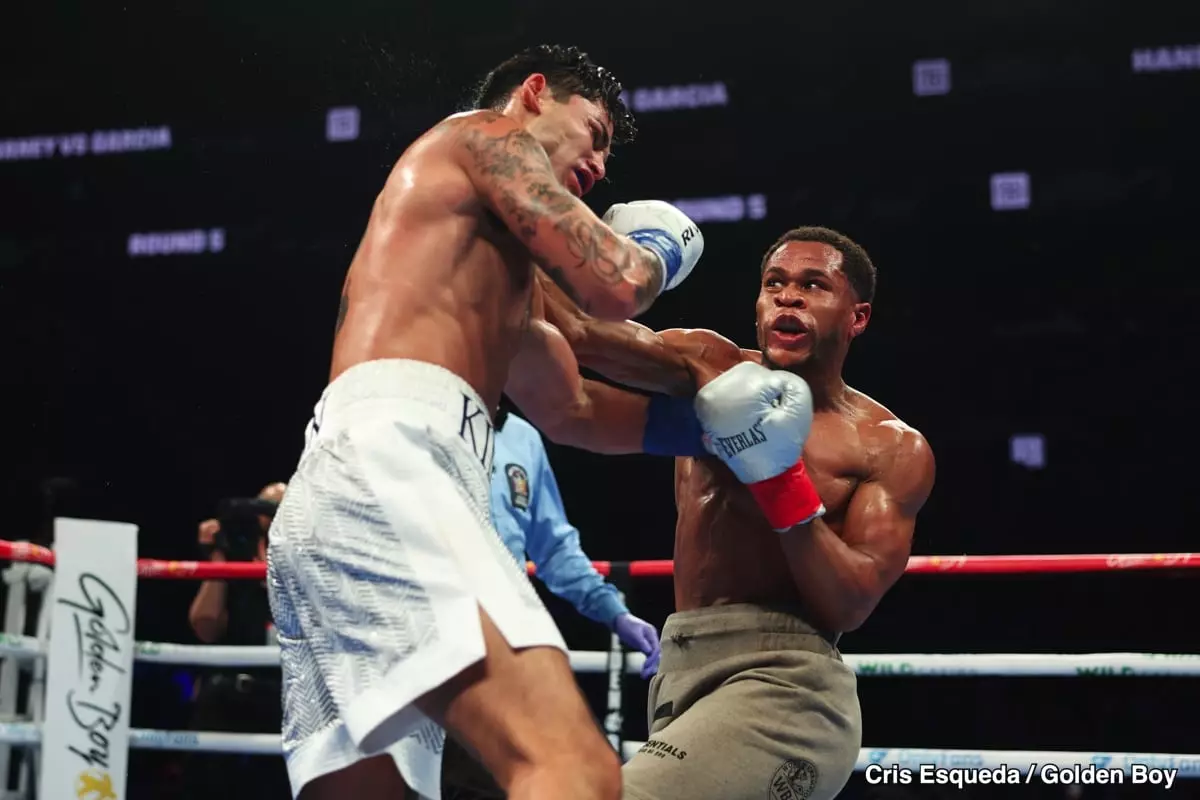In the realm of boxing, losses can greatly impact a fighter’s career trajectory and emotional stability. Devin Haney is currently facing the daunting task of rebuilding after suffering a significant defeat at the hands of Ryan Garcia last April. Promoter Eddie Hearn has been vocal about what he believes is the best course of action for Haney. The consensus is clear: a “tune-up” fight is essential for Haney to regain his confidence and realign his focus before taking on more formidable opponents.
The emotional toll of the bout is palpable. In a recent interview, Haney’s demeanor reflected his struggle, with the fighter appearing visibly shaken and on the verge of tears. Such a reaction speaks volumes about not just the physical but the psychological impact of the fight. For a boxer like Haney, the need to rebound quickly is imperative—yet Hearn is keen to guide him towards a safer revival plan.
Avoiding Risks and Setting Realistic Goals
Hearn has ruled out an immediate matchup against IBF light welterweight champion Liam Paro, despite speculation about a potential bout in Australia. While Hearn did not explicitly state the reasons, it is likely tied to the stringent IBF rehydration rules, which restrict the weight difference that fighters can have on the morning of a fight. Haney, who has reportedly rehydrated to around 165 lbs, would struggle to meet the required weight for a bout with Paro, making this fight impractical.
This strategic avoidance of high-stakes fights illustrates Hearn’s understanding of the boxing landscape, especially concerning Haney’s lagging performance in recent matchups. Hearn’s assertion that it would be unwise for Haney to face any of the elite welterweights stems from not only Haney’s current emotional state but also from the reality of his physical capabilities. The welterweight division is notorious for its knockout power, and Haney’s chin may not endure the punishment that comes with such encounters.
The Road to Redemption
Eddie Hearn’s recommendation is a prudent one: Haney should seek out a more manageable fight at a catchweight between 140 and 147 lbs by the end of the year. This approach grants Haney a chance to pave his return to the ring in a controlled environment, allowing him to focus on rebuilding his skills and confidence. Such a strategy ensures he will not enter the ring against a puncher who’s capable of delivering another devastating loss, thus preserving his long-term prospects in boxing.
As Hearn emphasizes, the urgency to remain active in the ring is crucial for Haney. No fighter should languish in inactivity, especially when lingering uncertainties exist regarding the future of rivals like Ryan Garcia, who might be sidelined for extended periods due to suspension. Hence, boxing can often be a game of timing, and Haney’s management might depend on making the right moves at the right moments.
Eddie Hearn’s advice to Devin Haney is a measured response to the fallout from an overwhelming defeat. By encouraging a step back to regroup rather than a leap into potentially punishing situations, Hearn aims to craft a comeback that not only establishes Haney as a contender but safeguards his wellness—both physically and mentally. Boxing is not just a sport of physical bravado; it requires strategic thinking, and right now, it’s time for Haney to think wisely about his next steps.

